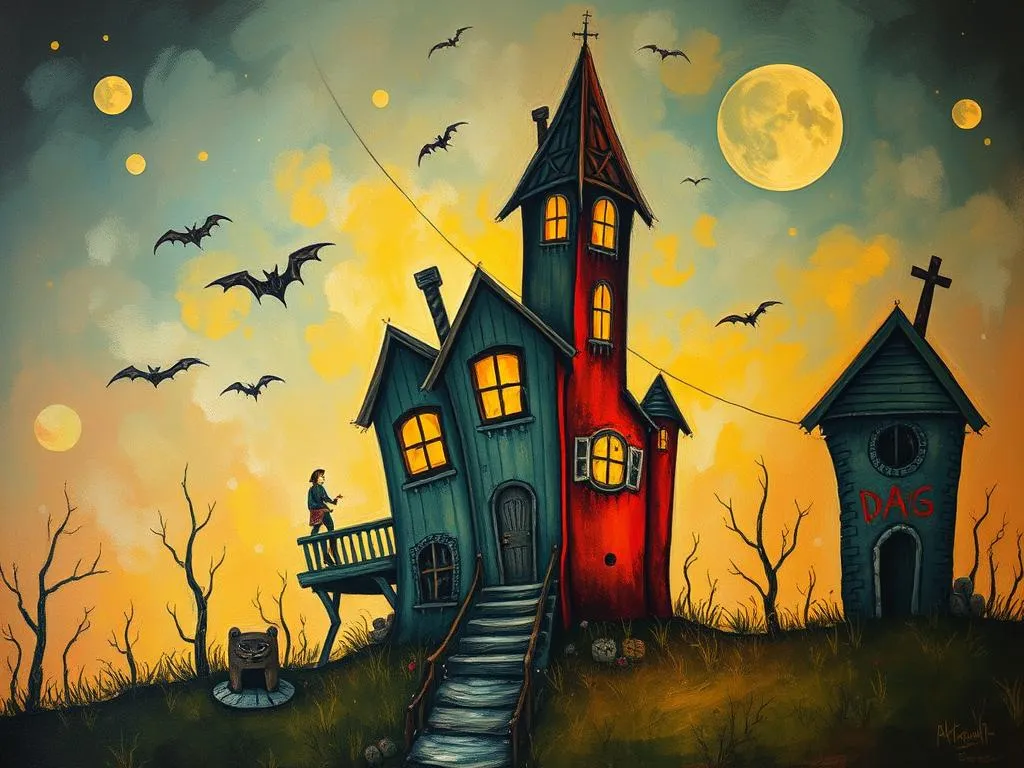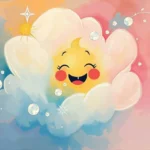
Have you ever woken up in a cold sweat, heart racing, after a particularly terrifying dream? Perhaps you encountered dark figures lurking in the shadows or found yourself trapped in a nightmare loop that felt all too real. These unsettling dreams can leave you questioning their meaning and relevance to your waking life. The world of dreams, especially those that evoke fear, is a profound landscape of our subconscious mind, reflecting our deepest anxieties, unresolved conflicts, and sometimes even our hidden desires.
Dreams of horror are not merely products of our imagination; they are symbolic narratives that can offer insight into our emotional and psychological states. Understanding these symbols can be both fascinating and illuminating. Let’s embark on a journey through the eerie world of horror dreams, examining their meanings, exploring real-life scenarios, and uncovering pathways to personal growth.
Shadows of the Mind: Decoding Horror Symbols
In the realm of horror dreams, symbols serve as the language of the subconscious. They can represent a myriad of emotions, fears, and conflicts. Here are some common symbols found in horror dreams and their potential meanings:
1. Darkness: The presence of darkness in dreams often signifies the unknown or unexplored aspects of oneself. It may reflect feelings of uncertainty or confusion in waking life. Embracing this darkness can lead to greater self-awareness.
2. Monsters: Dreaming of monsters can symbolize repressed emotions or fears that you may struggle to confront. These creatures often embody aspects of ourselves that we deem unacceptable or frightening. Recognizing and embracing these qualities can be a powerful step toward integration.
3. Chasing Figures: Often, being chased in a dream indicates that you are trying to escape from an issue or emotion in your waking life. This symbol urges you to confront what you’re running from, as evasion can lead to more anxiety.
4. Trapped Spaces: Finding yourself confined in a small room or a cage in your dreams can reflect feelings of helplessness or being stuck in a situation. This symbol could be a call to seek freedom and explore new opportunities.
5. Blood: Blood in dreams is a potent symbol associated with life force and emotional intensity. It might indicate feelings of loss, guilt, or vulnerability. Paying attention to the context can help you interpret its meaning accurately.
These symbols highlight the complex web of feelings and experiences we navigate in our lives. Understanding their implications can empower you to face your fears head-on, rather than allowing them to linger in the shadows of your mind.
Tales from the Abyss: Real-Life Horror Dream Scenarios
To paint a clearer picture of how these symbols manifest in our dreams, let’s explore some relatable scenarios that many may encounter:
Scenario 1: The Haunted House
In this dream, you find yourself wandering through an old, decrepit house filled with eerie sounds and ghostly apparitions. You feel an overwhelming sense of dread as you explore each room, unsure of what lies ahead. This scenario may indicate that you are confronting unresolved issues from your past. The house represents your mind, with each room symbolizing different memories or emotions that need attention.
Scenario 2: The Unseen Attacker
Imagine dreaming of being attacked by an unseen force. You can’t see your assailant, but you feel their presence closing in on you. This dream often signifies the fear of losing control or feeling overwhelmed by external pressures. It can also reflect insecurities or self-doubt that you may not be consciously aware of.
Scenario 3: The Endless Fall
In this nightmare, you find yourself falling into an abyss with no end in sight. The sensation is terrifying, and you wake up before hitting the ground. This can symbolize feelings of instability in your life, whether it be financial, relational, or emotional. It suggests a fear of failure or losing your footing in an important area.
Scenario 4: The Creeping Shadow
You dream of a shadowy figure slowly approaching you, leaving you paralyzed with fear. This symbol often represents a fear of the unknown or anxieties about future events. The shadow may embody aspects of your own psyche that you have yet to confront, hinting at a need for self-reflection.
Scenario 5: The Nightmare Loop
In this dream, you repeatedly experience the same horror scenario, unable to escape it. This can reflect a cyclical pattern in your waking life, such as recurring conflicts in relationships or persistent negative thoughts. It serves as a wake-up call to break free from these cycles and seek resolution.
These scenarios illustrate how horror dreams tap into our fears and emotions, providing valuable insights into our waking lives. By reflecting on these experiences, we can unravel the mysteries hidden within our dreams.
Reclaiming Power: Transforming Fear into Growth
While horror dreams can be unsettling, they also offer rich opportunities for personal growth and transformation. Here are some strategies to help you navigate the fear and emerge stronger:
1. Journaling Your Dreams: Keeping a dream journal can be an effective way to record your horror dreams and analyze their symbolism. Writing can provide clarity and help you connect the dots between your dreams and waking life.
2. Engaging in Self-Reflection: Take time to reflect on the emotions and themes present in your horror dreams. Ask yourself what fears or issues may be lurking beneath the surface. This practice can help you identify areas of your life that require attention.
3. Practicing Mindfulness: Mindfulness techniques, such as meditation or deep breathing, can help you stay grounded and reduce anxiety. By fostering a sense of calm, you may find it easier to confront the fears that your dreams bring to light.
4. Embracing Creativity: Channel the energy from your horror dreams into creative outlets, such as art, writing, or music. Expressing your fears artistically can be a cathartic experience, allowing you to process your emotions in a constructive way.
5. Seeking Support: If you find that your horror dreams are impacting your daily life, consider talking to a trusted friend or a professional therapist. Sharing your experiences can provide validation and open up new perspectives on your fears.
Ultimately, horror dreams serve as a mirror reflecting our internal landscapes. They remind us that fear is a natural part of the human experience, and facing it head-on can lead to profound personal growth.
As you explore the depths of your subconscious, remember that each nightmare is a call to action—a chance to confront your fears and emerge more resilient. After all, the shadows may seem daunting, but they can also illuminate the path to self-discovery.
Reflect on this powerful thought: In the heart of darkness lies the potential for profound transformation. Embrace your horror dreams as guides, leading you toward understanding and empowerment.







